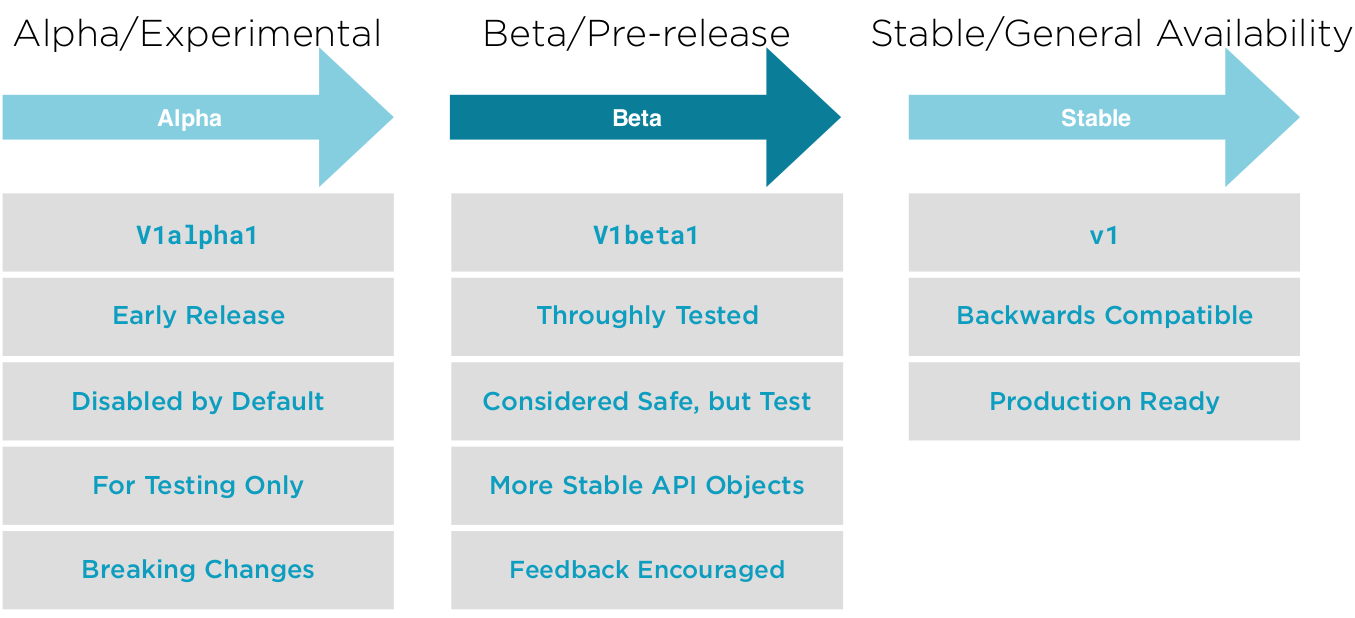API Version
- API is versioned
- Provide stability for existing implementations
- Enable forward change
- Alpha -> Beta -> Stable
- No direct relation to release versions
Evolution of an API version

Commands
#Get the list of the API resources
kubectl api-resources
#Filter on a specific group
kubectl api-resources --api-group=apps

#Explain command get more information for a specific API Object
#Check out KIND and VERSION
#If VERSION = extensions/v1beta1, the API Group is deprecated
kubectl explain deployment | head
#Get the API Group in a specific version
kubectl explain deployment --api-version apps/v1 | head

#Print the supported API versions on the API Server
kubectl api-versions | sort | more
Créer un fichier sur le serveur deployment.yaml et mettez ceci
apiVersion: apps/v1
kind: Deployment
metadata:
name: hello-world
labels:
app: hello-world
spec:
replicas: 4
selector:
matchLabels:
app: hello-world
template:
metadata:
labels:
app: hello-world
spec:
containers:
- name: hello-world
image: gcr.io/google-samples/hello-app:1.0
ports:
- containerPort: 8080
Nous déployons le fichier
kubectl apply -f deployment.yaml
#Let observ the result
kubectl get deployments.apps hello-world -o yaml | head
La version du déploiement est "apps/v1"

#Let's clean up after this demo
kubectl delete deployment hello-world